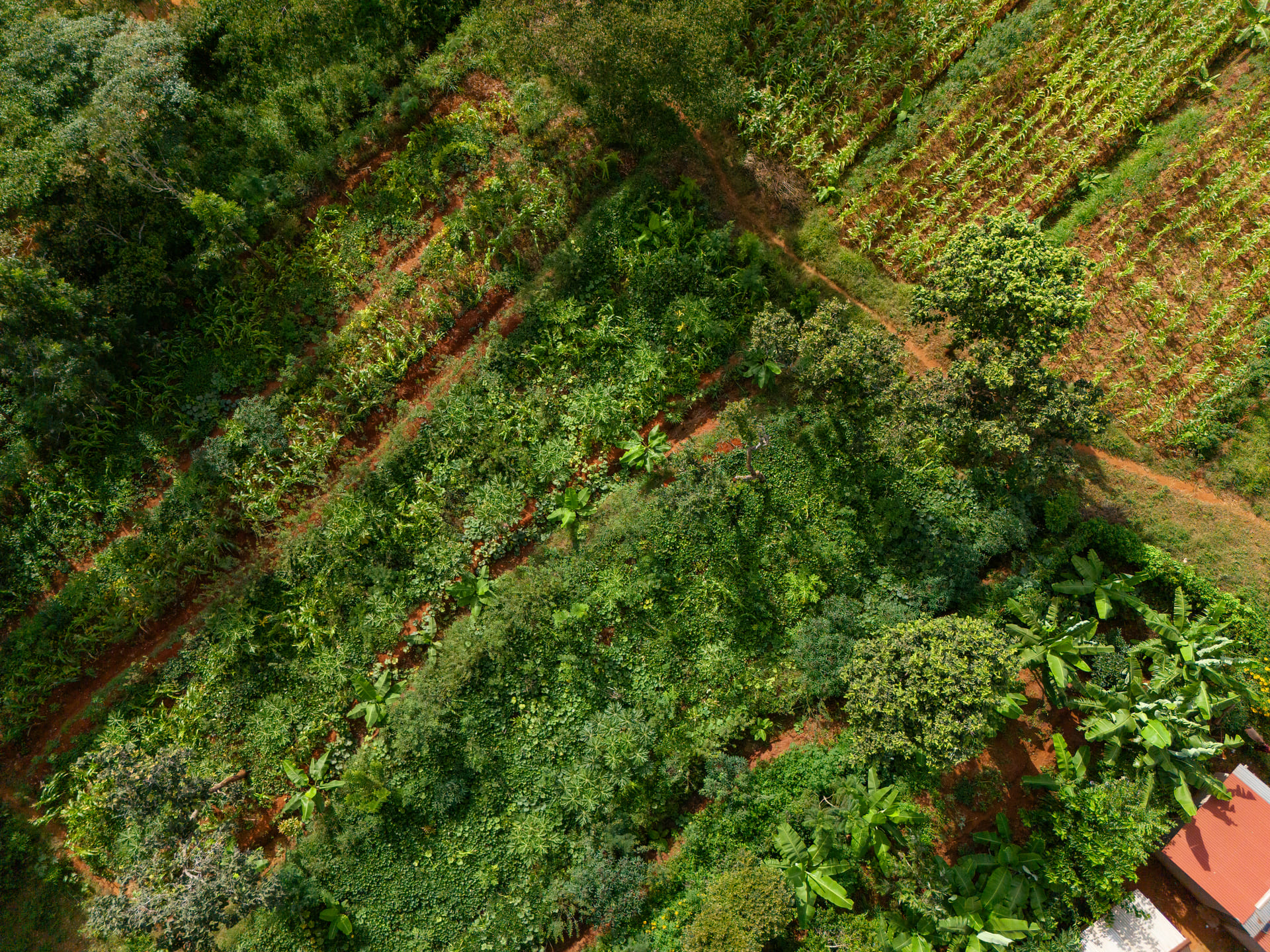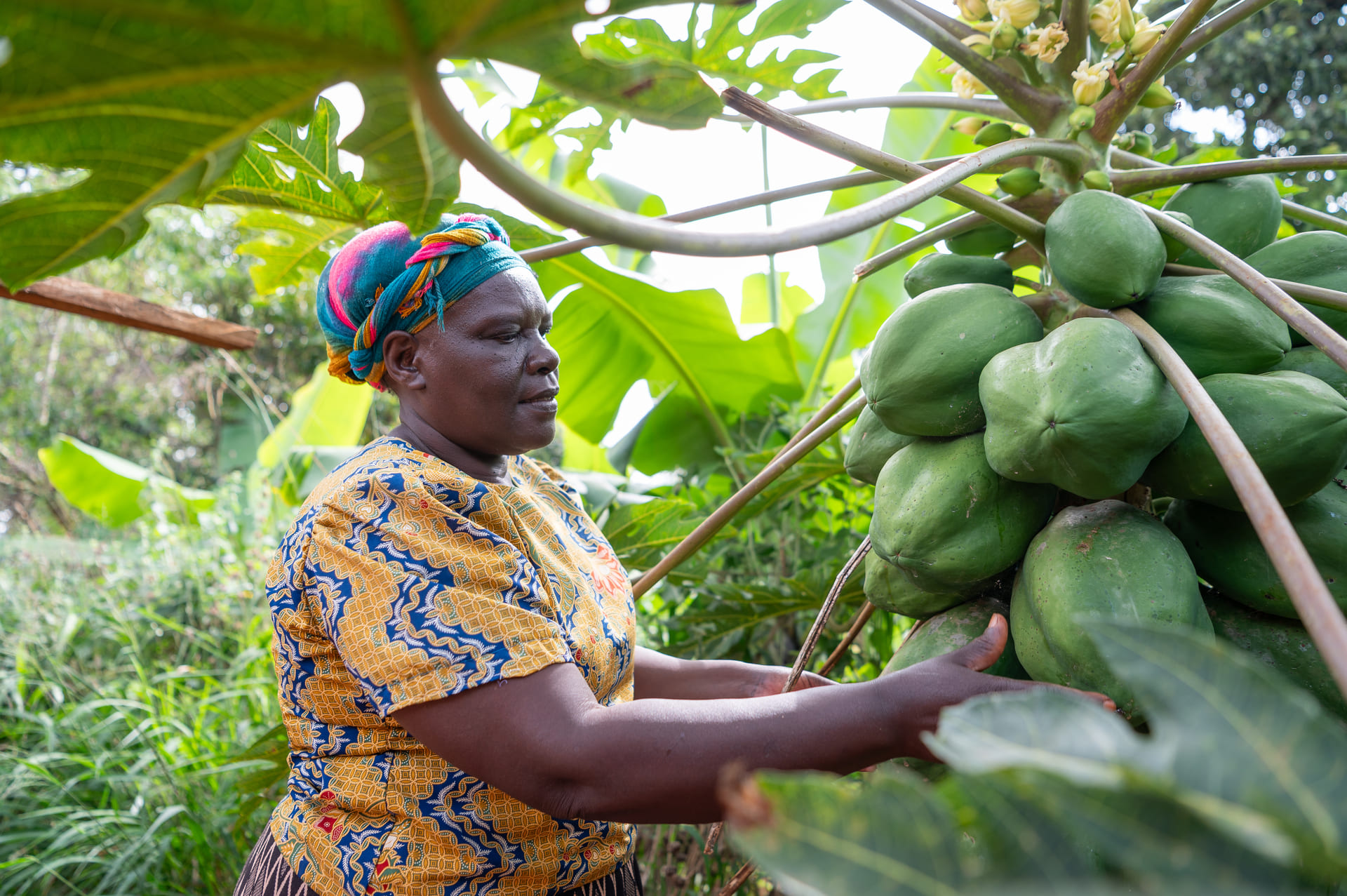 " alt="Partnering with Enviu to promote environmental and social resilience through regenerative agriculture in Kenya">
Ariel view of a regenerative farm ©All rights reserved Enviu
" alt="Partnering with Enviu to promote environmental and social resilience through regenerative agriculture in Kenya">
Ariel view of a regenerative farm ©All rights reserved Enviu
Partnering with Enviu to promote environmental and social resilience through regenerative agriculture in Kenya
Founded in 2004, Enviu is a mission-driven non-profit organisation dedicated to creating positive global impact. Enviu believes in an economy that serves people and planet, and an economy that sustainably utilizes the valuable and limited resources our planet endows.
In East Africa, Enviu has centered its efforts on the agri-food sector, with specific emphasis on creating and developing sustainable initiatives in resilience, climate mitigation and adaptation for smallholder farmers. By addressing key challenges within the food value chain, Enviu seeks to incentivize farmers to adopt regenerative farming practices that restore soil biodiversity, improve yields, and ultimately create pathways for smallholder farmers to secure a decent livelihood. The post-harvest loss prevention program started in 2019, has resulted in two sustainable models, which in 4 years, have managed to impact over 12,000 farmers, created 1000 jobs and prevented 3.7 million kgs of food loss.
Smallholder farmers supply 80% of the region’s food but face challenges from degrading soil and extreme weather. Many farmers use conventional farming practices that rely on harmful chemical inputs, which threaten human and animal health and deplete soil nutrients. This unsustainable approach leads to declining biodiversity and decreased soil fertility, worsening the effects of climate change and perpetuating the cycles of food insecurity and poverty.
Regenerative agriculture fosters sustainable farming practices with the potential to mitigate the negative climatic impacts of conventional agriculture. Enviu adopts a distinctive ecosystem-based approach to ensure its long-term viability, collaborating closely with smallholder farmers to identify adoption challenges and implement systemic, lasting interventions that enable a smooth transition.
In 2024, the Nando and Elsa Peretti Foundation (NaEP), aligned with its mission to foster a healthier relationship between people and the planet through sustainability, awarded a grant to Enviu to advance its initiatives in Kenya. Thanks to this grant, 2,000 smallholder farmers in Machakos County, Kenya, will transition to regenerative agriculture. This initiative will lay the foundation for a sustainable, scalable model that restores the land, empowers communities, and ensures food security for generations to come.
The main objectives of the project are:
- To increase the adoption of regenerative farming among smallholder farmers, improving soil health, biodiversity, and farm productivity.
- To enhance agricultural yields and stability on regeneratively farmed plots, ensuring food security and economic resilience among smallholder farmers.
- To facilitate market integration by developing a reliable market for sustainably and safely grown produce.
- To strengthen smallholder farmer incomes through improved access to markets and economic opportunities.
The journey to regenerative agriculture adopts a farmer centric approach that starts with hands- on training, reinforced through practical demonstrations to ensure effective application. Farmers will be equipped with essential resources such as eco-friendly fertilizers, seedlings, and specialized regenerative farming tools to support their transition. Additionally, field officers will provide on-site guidance and troubleshooting, ensuring farmers receive the support needed for long-term success. In addition to on-farm interventions, the project focuses on developing market pathways to ensure farmers have access to reliable and profitable markets for their produce. By forging partnerships with exporters, retailers, and institutions, the farmers will be connected to profitable market opportunities.
In the long term, this approach will drive the widespread adoption of regenerative agriculture through a self-sustaining, scalable model. This model will continue to support farmers in their transition, enabling growth and expansion across Kenya and the region.
 A farmer showcasing her regenerative farm produce ©All rights reserved Enviu
A farmer showcasing her regenerative farm produce ©All rights reserved Enviu
